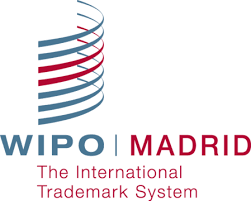It will be recalled that on January 12, 2017 the USPTO published a Federal Register notice proposing to discontinue the Accelerated Examination program. I blogged about the Federal Register notice here in February of 2017. Members of the public filed comments in response to the Federal Register notice, as I discussed here in April of 2017. It is now October of 2017 and one might wonder, what happened to USPTO’s proposal to discontinue AE? Continue reading “Did Accelerated Examination go away?”
Can you put your EPF file on a thumb drive?
We all know that two-factor authentication is a Good Thing. Having said that, we have all known from the moment (thirteen years ago) when USPTO rolled out its awkward Entrust java applet approach for access to PAIR and EFS-Web, that it was a Bad Thing. Yes it provides two-factor authentication. But it provides the two-factor authentication in a very poorly designed way. Every year or so I have blogged (over and over and over again) about the need for USPTO to scrap that Entrust java applet approach in favor of any of a number of much more user-friendly types of two-factor authentication.
Having said all of this, the plain fact is that for thirteen years now, USPTO has stubbornly stuck with this poorly designed Entrust java applet approach for PAIR and EFS-Web that it adopted in 2004. The approach is tied to an all-important “EPF file” which is the second of the two factors (in addition to a password). If you don’t have your EPF file with you at the computer where you are trying to log in, or if you misplace the EPF file, or if it expires (which almost always happens without warning) then it is impossible to log in to PAIR or EFS-Web.
Which prompted a member of the PAIR listserv to ask this question:
Is there any reason I can’t store the EPF file on a USB thumb drive? That way I can put it on a physical keychain, use it at any computer, and if it is renewed (whenever that is), I am always using the most recent certificate?
The answer, as I will discuss, is sort of “yes” but with drawbacks. Continue reading “Can you put your EPF file on a thumb drive?”
Next steps for USPTO and PDX (China and Korea)
It will be recalled (see blog article) that on October 1, the USPTO shut down its PDX relationship with the Japanese Patent Office and migrated the certified-copy traffic from PDX to DAS.
This was a welcome development for practitioners because as compared with PDX, the DAS system offers many benefits:
- it is more secure (protected by authorization codes)
- It permits the practitioner to test ahead of the time of actual need, to make sure that the electronic document will be available when needed
- in the event of a problem with transmittal of an electronic certified copy, it permits the practitioner to troubleshoot and pinpoint the source of any difficulty
As I mentioned in that blog article, the natural next step would be for USPTO to do the same for its PDX relationships with the Chinese patent office (SIPO) and the Korean patent office (KIPO). The natural next step would be for USPTO to migrate its electronic-certified-copy relationships involving China and Korea from PDX to DAS. This would offer the many benefits of DAS to practitioners handling cases connected with China and Korea.
From the technical point of view such a migration ought to be easy and painless. It would only be a matter of turning off the PDX mechanism and the document flow should easily proceed within the existing DAS connections.
Maybe USPTO was holding back a bit on such a migration to see how the Japan migration went. If that was USPTO’s reason for holding back on the China and Korea migrations, then USPTO might as well proceed. Continue reading “Next steps for USPTO and PDX (China and Korea)”
Good news about EPO and DAS
 A week ago I blogged about the good news that the Eurasian Patent Office will soon be joining DAS. (It will be recalled that DAS is the sophisticated system for exchanging electronic copies of priority documents, and that it is much more user friendly and more secure than the PDX system.)
A week ago I blogged about the good news that the Eurasian Patent Office will soon be joining DAS. (It will be recalled that DAS is the sophisticated system for exchanging electronic copies of priority documents, and that it is much more user friendly and more secure than the PDX system.)
In that blog article I bemoaned that EPO had said it would join in 2015 or 2016, but had not yet done so. See this excerpt from a presentation made by EPO:![]()
Now there is good news. Continue reading “Good news about EPO and DAS”
Several countries maybe soon to join Hague Agreement!
I had an opportunity to talk with a very nice person from WIPO. This very nice person tells me that there are quite a few countries that are likely to join the Hague Agreement soon. Listed in approximate sequence of when they might join are:
- United Kingdom
- Russia
- China
- Mexico
- Israel
- Vietnam
- Canada
The typical first very visible step would be for a country to deposit an Instrument of Accession with the International Bureau of WIPO. The usual next development would be that the Hague Agreement would enter into force, with respect to that country, three months later.
This is a very exciting time for the Hague Agreement.
Aqua Products, Inc. v. Matal – Webinars to attend
Listserv members will all recognize Rick Neifeld’s name. He is a regular contributor to the listservs on many topics including PTAB topics. Rick lives and breathes the world of the PTAB.
We are all used to the idea that an Inter Partes review proceeding before the PTAB can be very scary for a patent owner — much more scary than a trip to a federal district court. The IPR proceeding moves along super-fast and almost before you can sneeze, the patent has been destroyed. From the beginnings of the IPR system in 2013, there was supposedly a mechanism by which the patent owner might possibly amend the claims and preserve at least some portion of the patent scope rather than losing everything. But the brief window of time during which the patent owner might try to do this would come and go in the blink of an eye. This and other aspects of the IPR system led some observers to characterize the PTAB as a “patent death squad”.
On October 4, 2017 the Federal Circuit handed down a decision (Aqua Products v. Matal, read the opinion here) that talks about how the PTAB is supposed to do its job. Among other things the decision shifts the burdens among the players in a PTAB proceeding as to whose job it is to establish the patentability or unpatentability of claims presented during an IPR claim amendment.
This might seem like a super-picky narrow topic that could only be interesting to the small handful of practitioners (of whom Rick is one) who live and breathe the world of the PTAB. But Aqua’s impact extends to all types of patent disputes, including strategy and tactics related to court proceedings and USPTO proceedings.
Rick will be moderating two webinars which are intended to explore the impact of Aqua. Here are signup links to the two webinars:
A phone call we’d like to receive more of!
Here is a quotation from an email that one of my colleagues sent to a client today:
We received a telephone call from the Examiner in the subject application.
The Examiner confirmed that the mention of a rejection under 35 U.S.C. 101 in the recent office action was a typographical error.
Wow, it would be so nice to receive more such phone calls! I do think that such telephone calls would promote science and the useful arts.
Why you can’t always count on a subsequent designation being available?
 A member of the Madrid Protocol listserv asked:
A member of the Madrid Protocol listserv asked:
I would like to file an e-subsequent designation for India. The country of origin is the EU and the owner is in an EU-member country. A [Madrid Protocol] application was filed in 2011 designating countries other than India. On the e-Subsequent Designation application page, a number of countries are listed from which to choose to designate protection. India is NOT listed as one of those countries. Am I missing something? Does anyone know why India does not appear in the list of countries to designate subsequent protection to?
I was fascinated to learn why it is that India is a member of the Madrid Protocol and yet an owner of an International Trademark Registration might not be able to carry out a subsequent designation to India. The explanation also offers a reminder how important it is to use an e-validated filing tool from WIPO rather than filing on paper. Continue reading “Why you can’t always count on a subsequent designation being available?”
Password complexity rules are out of date
![]() We are all familiar with systems that force the user to select a password using a complexity rule. You know, the rules that say that the password is required to contain an upper case letter and a lower case letter and a numerical digit and at least one character that requires at least two hands to type on a keyboard.
We are all familiar with systems that force the user to select a password using a complexity rule. You know, the rules that say that the password is required to contain an upper case letter and a lower case letter and a numerical digit and at least one character that requires at least two hands to type on a keyboard.
And we are all familiar with systems that force the user to change his or her password frequently — every few months for example.
It turns out that these rules are outdated and should be scrapped.
Continue reading “Password complexity rules are out of date”
Joining the DAS club – Eurasian Patent Office

The intellectual property community benefits each time another Office joins the Digital Access Service (DAS).
The good news is that on November 1, 2017, the Eurasian Patent Office (EAPO) will join DAS.
EAPO will participate with DAS in both directions:
- as a depositing Office, and
- as an accessing Office.
The participation will include color documents as well as gray scale and black and white documents.
This is very good news.
Perhaps the biggest patent office (in terms of volume of patent filings) that has not yet joined DAS is the European Patent Office. Here is a set of slides which EPO presented in May of 2015. At slide 8, the EPO said:![]()
It will surely be a welcome development when EPO joins DAS.
Another welcome development will be when EUIPO joins DAS, which will facilitate exchange of priority documents for the purpose of industrial design applications.
(See followup article on EPO’s plans to join DAS.)
